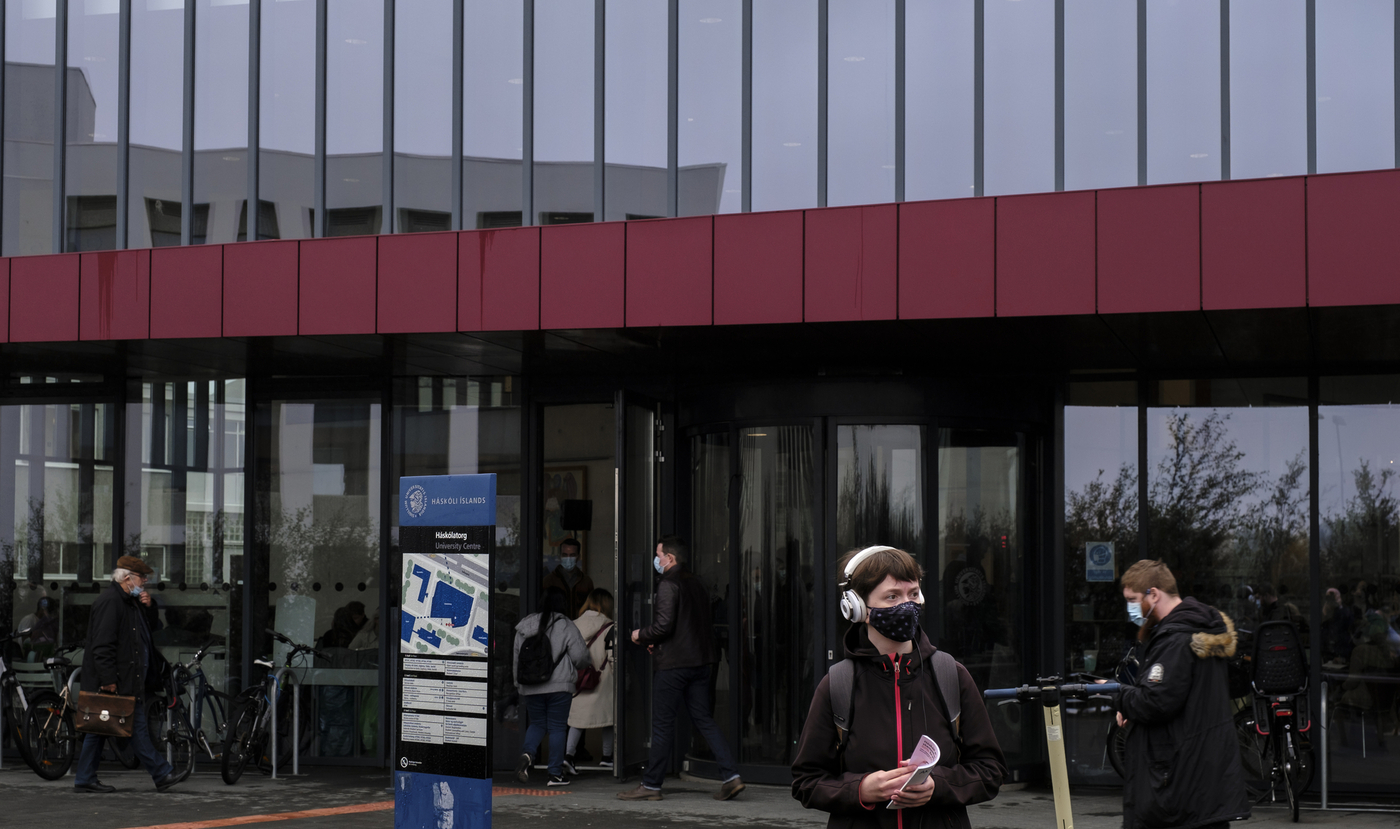Jón Atli Benediktsson, Rector of the University of Iceland, sent the following message to University staff and students today (29 October 2021):
"Dear students and colleagues,
The University of Iceland has set ambitious goals with our new strategy, which as before focuses on the quality of our study programmes. Teaching methods have been in continuous development over the last few years, taking advantage in particular of new technology and opportunities in IT and distance teaching. When developing teaching and learning, it is absolutely vital that there is no drop in academic standards, since education is at the heart of the University's mission and in many ways key to the value of the degrees our graduates hold. The University strives to remain an institution that offers high-quality on-campus learning, where a vibrant community of students, teaching staff and researchers form a wellspring of new knowledge. Nevertheless, distance learning is a crucial part of the University's vision.
There has been a lot of discussion about distance learning recently, in particular better services for students living outside the capital area and others who are not able to learn on campus. The University has prioritised development of distance learning for selected programmes, such as teacher education and professional education at the School of Education, health information management, and public administration. UI has offered a diverse range of distance learning options for many years, at the School of Education in particular – it is worth mentioning, for example, that over a thousand students outside the capital area are registered in at least one distance course at the University this autumn semester.
The development of digital teaching at UI, as well as teaching experiences from the pandemic, provide an opportunity to enhance distance learning over the next semesters. The new strategy of the University, UI26, states that particular emphasis will be placed on developing distance learning, including the establishment of clear quality standards. We have already made a good start on this project. As we continue to develop distance learning, it is vital that we take advantage of the experience we already have, not least at the School of Education which has offered integrated distance and on-campus learning for many years. We aim to ensure that such programmes always meet international standards when it comes to the quality of learning and degrees.
The University's next step will be to invite suggestions for where distance learning could be introduced or improved, at the same time providing systematic support to help faculties develop distance programmes.
UI's plan for distance learning will be presented in detail over the next months and further developed in consultation with faculties, schools and student representatives. We will also consult the government and other stakeholders regarding prioritisation of additional distance learning options at the University. Furthermore, we plan to offer annual funding to support the development of distance learning for selected programmes. We will also make further improvements to the equipment available for distance learning.
It is extremely important to us to understand the nature of society and, not least, our own nature as individuals and as a nation. The annual Þjóðarspegill conference, the University of Iceland's social sciences conference, is taking place today, entirely online. Research into crime and love, gender-based violence and COVID-19, disability studies and the media, pop culture, climate change and marketing and tourism – these are just a very few of the topics that will be discussed by over 300 speakers in over 200 lectures in 53 seminars. Yes, it is safe to say that social sciences are flourishing at the University of Iceland! I urge you all explore the latest research in the largest academic field at the University.
The University of Iceland aims to make significant strides as an international institution over the next few semesters, with the goal of engaging in productive dialogue and collaboration with universities across the world. It is therefore particularly gratifying to note that 17 students and academics from a range of academic fields at UI and Japanese universities have received conditional offers of grants from the Watanabe Trust Fund. The trust fund was established with a donation of USD 5 million from the entrepreneur and friend of Iceland Toshizo Watanabe; this is one of the largest monetary donations the University has ever received from an individual.
Tuesday marks the beginning of International Days at UI, a programme of events designed to raise awareness of international collaboration at the University and the huge range of opportunities available to students and staff all over the world. The universities in the Aurora collaboration, which is led by UI, are also running a webinar series from 2 to 5 November. The goal is to give students and students at the 11 member universities a chance to learn more about other Aurora universities: what sets them apart, what study options they offer, the destinations themselves, and the university communities. Each university will also host a panel discussion where students will discuss their experiences with regard to education and the community.
By collaborating with international partners in as many fields as possible, we not only strengthen the University of Iceland as an institution, but also open up a wealth of opportunities for students and staff.
Unfortunately, there are still clouds on the horizon when it comes to the pandemic. Many of us are sick and tired of setbacks, but we must hold our resolve and remember all the important victories we have already won. I urge you, dear students and colleagues, to continue to defend the progress we have made. Your resilience and solidarity are invaluable in the efforts against COVID-19. Remember to take precautions to prevent the spread of infection. Masks have proven their worth. We should wash and disinfect our hands regularly and thoroughly. Also remember to download the Directorate of Health's contact tracing app and sign in to classes using the QR codes that can be found on all classroom tables.
We must remain cautious, but make the best of the weekend."




